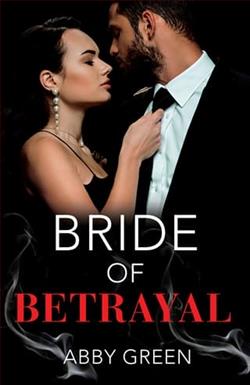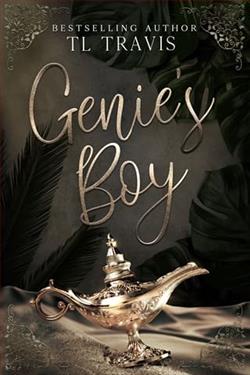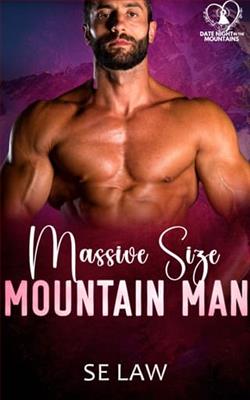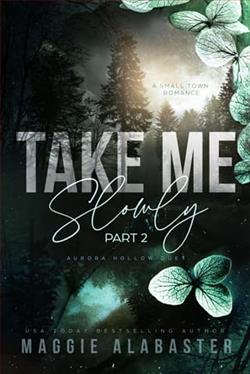Page 1 of Hidden Daughters
PROLOGUE
THE PAST
When her mother died, she was not yet seven years old and she believed it was the worst day of her young life. How naive of her. There were times ahead that would define ‘worst’ for her in a myriad of ways.
The day her daddy hit her with the back of his hand, almost breaking her nose, she knew things would never be the same again. He’d been in Flanagan’s bar all evening, spending the money he’d made at the mart after selling two lambs, and she was at home trying to feed and change the baby. One of her brothers was outside in the yard. The eldest lad was a bit of a waster. She’d heard that said about him, and her daddy had said he would be written out of his will. Whatever that meant.
Her daddy wasn’t happy when he arrived home. He was never happy since her mammy died. There was no one to keep him on a straight line. And a straight line of any sort was far out of his ability after spending hours in Flanagan’s.
She was frying rashers in a pan on the range and had burned them. The smell was so bad that it clung to her clothes, her skin. She turned around when she heard him kick off his rubber boots on the front step. She knew he was drunk. Badly drunk. She abandoned the rashers and ran into the side roomwhere the baby, born the day her mother died, was asleep in the cot.
Her daddy always looked at the baby nasty like, and she feared he could do harm to the little mite. He’d tried it before, and she’d grabbed the baby and run the whole way to her granny’s house across the fields. Her granny sent her home when she asked if she could live with her. No, she’d said, she was not her mammy. Go home to your daddy, she’d said. The little girl pleaded for her granny to take just her and the baby, not her brothers. The boys could look after themselves. Her granny had said she was sorry, but no, and told her to go on home. So she did. She knew she had no one and nowhere to run to.
Her father thundered into the room, the frying pan in his hand, black smoke rolling up to the ceiling like a bad omen.
‘What do ya think you’re doing?’ His words were slurred, his body leaning to one side like he was about to fall over, pan and all.
‘I… I was cooking for me and you. There’s no milk for the baby. Did you get milk on your way home from the mart?’
‘Are you trying to be smart with me, Miss Prim?’
‘God, no, Daddy.’ She hated when he called her that. It made her disgusted at her torn dress and ripped socks. She was no more prim than the man in the moon. If her mammy was still alive, she would be dressed better.
‘Don’t you go taking the good Lord’s name in vain. He was no use to your mother in her dying days and he’s no use to you now either. Come here.’
She knew she had to do whatever he said. She walked slowly away from the cot, thankful that the baby was asleep.
‘Yes, Daddy?’
‘You need a convent education. The nuns will knock the corners off you.’
‘What nuns? At primary?’ She hadn’t gone to school since her mother died, nearly a year ago. Did he mean she could go back? She rarely knew what he meant, especially after he’d had a feed of pints.
‘Primary? You good-for-nothing hussy.’ He swayed then and leaned against the door jamb. ‘You need to make a few bob while you’re getting a good Catholic education, lassie. I’ll be bringing you down to the convent of the Sisters of Forgiveness.’
She had no idea who that was or where they were. And now the baby decided to wake up, and her father, as if suddenly realising he was still holding it, threw the frying pan across the room. The blackened rashers hopped out of it and grease splashed everywhere. She’d have to clean it all up. She thought she’d never be able to look at a rasher again, never mind eat one.
She was not to know that she wouldn’t even get the opportunity.
1
COUNTY GALWAY
SUNDAY
‘I’m Imelda Conroy, and my radio documentary is dedicated to those who lived through a horrific time in Irish history. A time from the not-too-distant past. A time when young women were shamefully branded “fallen women” by the Church, even though most were just girls who’d been abandoned by their families to be hidden away behind imposing convent walls. Convents with laundries. Magdalene laundries, so called after Mary Magdalene, and you know howshewas portrayed in the Bible.
‘But we won’t be talking about biblical times. Instead we will be concentrating on the late nineteen seventies and eighties, even up to the mid nineties. The women you will hear recounting their experiences were painted as modern-day Mary Magdalenes. Fallen women. A misnomer if ever there was one. They did not fall, they were pushed. They were not women, they were no more than children.’
Imelda hit the pause button. She inhaled a breath and scanned her eyes over her notes, though she didn’t need them.
‘You will hear from survivors. Ordinary young women. Some were just children abandoned by their families because offinancial problems. Others were pregnant girls, and at a time that should have been the happiest of their lives, they were ostracised by family, church and community. I want you to hear these survivor stories in order to honour those who did not survive. Women and children who lost their lives behind those high walls. Who knows how many lie in unmarked graves throughout this luscious green island of saints and scholars. Ha. The reputation of this little country was apparently greater than the lives of the most vulnerable in our society.’
Removing her headphones, Imelda sat back in her chair. She’d already recorded and edited some of the episodes. She had one more to do, but for now she was framing the intro for Episode 1.
Having listened to the women speak for hours over the past few months, she felt physically and emotionally drained. She would finish the introduction in the morning. No, finish it now and have a lie-in.
She felt a tingle of excitement. What she had uncovered was about to blow the previous reports and investigations wide open. It could rock the government, might further erode the power of the Catholic Church in Ireland. The last vestiges of respect for the Church would crumble under the words of these brave women. And no one knew of her own emotional link to the story. The truth was, she hadn’t yet figured out the whole sorry tale. She was still searching. Seeking to uncover who she was and why her life had taken the twists and turns it had.















